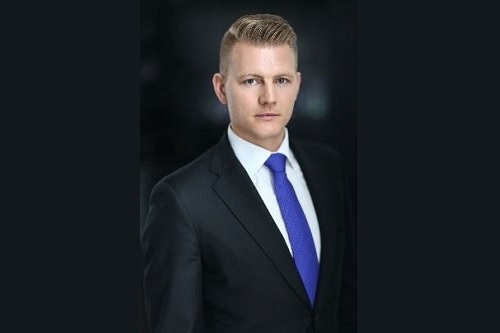After a life-changing meeting, Jay Gangnes has learned to embrace innovation and pursue value

As a college student, Jay Gangnes thought his talent in math would make him well-suited to be a corporate investment professional. But after he earned his Diploma of Technology in Corporate Finance from the BC Institute of Technology, his career took an unexpected turn.
“In 2003, I was golfing with someone who was an advisor with Sun Life, which was Clarica at the time,” Gangnes said. “His branch manager was at the same course; it was just pure luck. He reached out to me afterward, and even though he didn’t know much about me, I was brought in as a new advisor.”
Celebrating our industry successes in the wealth management industry
At the time, Gangnes was like many fresh graduates: he didn’t know much about the industry he was in or his future plans, but he was determined and diligent. He put his head down and made the most of the opportunity, spending two and a half years at the company and learning all he could.
“Eventually, I recognized the opportunities outside Clarica and in having my own business as an independent advisor,” he said. In 2005, he hung his own shingle as the owner of JR Financial, which will officially be renamed as Ocean6 Wealth Advisory in March.
For the last 12 years, he has helped clients navigate through financial obstacles and challenges. “Having clients walk out of the office with a plan for their financial future is the best feeling,” said Gangnes, who now also holds the CFP, CLU, and CCS designations. “When a client comes in with a problem and we solve it with an innovative solution — not just by targeting 8% or 10% in investment returns, but coming in with a higher-level tax or planning strategy — it's what's exciting and fulfilling for me.”
Sustaining a practice for more than a decade is no small feat, and Gangnes attributes his success to one key mindset: rather than seeing himself solely as an advisor or part of a sales force, he considers himself a business owner. He pursues continual growth and evolution, which has driven him to seek guidance from external resources to help elevate his practice.
“The first coach I met was Michelle Hoskin, a financial-planning consultant from the UK,” he said. At the time, the business had plateaued; it was doing well, but despite all the hours he was putting into it, it wasn’t growing.
“Michelle walked in and essentially said we needed to change everything we were doing in order for us to grow exponentially,” he said. “And she made me realize that I couldn't keep working 60- to 80-hour weeks myself. I needed to hire additional support staff and focus on coming up with different ways to create value for clients.”
It was a transformative experience. Since then, Gangnes has been dedicated to making sure his business grows and delivers value to clients. As part of that effort, he has been participating in a program called Strategic Coach, which holds a quarterly workshop for entrepreneurs to learn how to structure and grow their business effectively.
From his perspective, the recent regulatory developments surrounding commissions and fee disclosures have been an exciting step in the right direction. “We believe that the underlying commission for investment funds should be totally removed so that fees are separate and clear to clients,” Gangnes said. “And fees have to be disclosed to a finer degree than CRM2 requires right now. I don’t think most statements are making it clear that advisors should do more than pour money into a mutual fund and hope it does well.”
The ability to deliver advice beyond investment-product sales requires genuine expertise. For Gangnes, that means financial advisors must adhere to stricter professional standards, similar to lawyers and accountants.
“I understand that anybody can call themselves an advisor today, and that the regulators are trying to eliminate that,” he said. “I think stricter requirements for professional qualifications and designations are important. A lot of investors deserve to know if they’re dealing with actual educated financial advisors, as opposed to someone who just put on the hat to get their business.”
And while many advocates contend that banning embedded commissions would create a cost barrier for smaller investors that need advice, he thinks that’s not necessarily true. “If you have numerous clients with a couple thousand dollars, why can’t you bring twenty or thirty of them together in a room and do group workshops?” he said. “Advisors that can think of new ways to serve and keep providing small clients with valuable advice would have a chance to get ahead.”
The ability to adapt and change is also important when it comes to technology. “I think we advisors, even those in their 60s or older, should embrace financial technology rather than irrationally think that it could replace human advisors,” he said. “Clients can benefit from convenient asset management, but they need more than that. As long as advisors focus on fulfilling people’s needs, they can create businesses that are not just more client-friendly, but will grow in the years to come.”
Related stories:
Why firm’s award takes pride of place
Keeping clients on the right financial track



